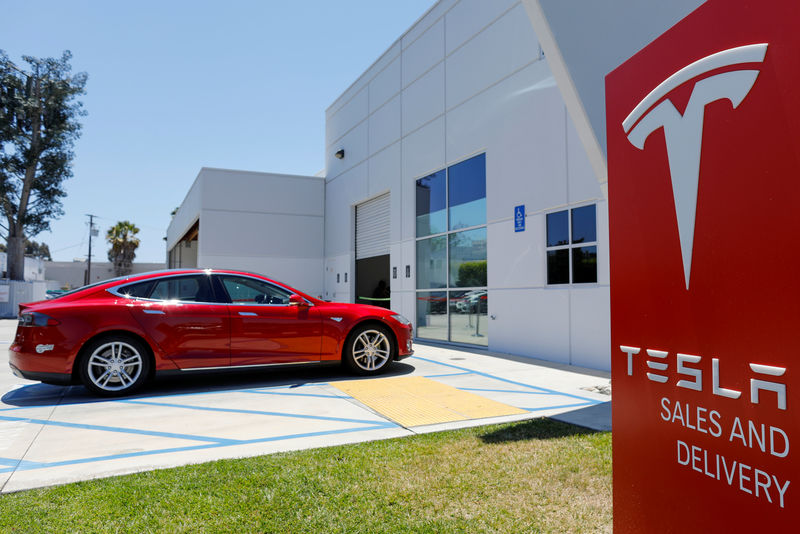By Investing.com Staff
In today's 10-K with the SEC, Tesla (NASDAQ:TSLA) highlighted additional risks from CEO Elon Musk selling stock in Tesla to satisfy commitments related to other business ventures - which appears to be in reference to his investment in Twitter.
"Mr. Musk from time to time may commit to investing in significant business or other ventures, and as a result, be required to sell shares of our common stock in satisfaction of such commitments," the updated filing reads without specifically naming Twitter.
In December 2022, Musk sold nearly $3.6 billion in Tesla stock after promising earlier that year not to sell any more stock. He later commented in a late-December Twitter Spaces conversation that he needed to sell more Tesla stock to "make sure, like, there's powder dry...to account for a worst case scenario." He commented in the same conversation that he will not sell any more Tesla stock for about two years.
Musk sold a total of about $40 billion in Tesla stock since late 2021, contributing to last year's 70% sell-off in the stock. Investors had grown fearful that Musk was using Tesla's stock as a piggy bank to fund his struggling takeover of Twitter.
So far this year, Tesla's stock has fared much better, gaining 38% YTD, as EV price cut actions have helped spur EV demand even as competition heats up.
Below you see the updated language from the 10-K with the new disclosure in bold and italics.
If Elon Musk were forced to sell shares of our common stock, either that he has pledged to secure certain personal loan obligations, or in satisfaction of other obligations, such sales could cause our stock price to decline.
Certain banking institutions have made extensions of credit to Elon Musk, our Chief Executive Officer, a portion of which was used to purchase shares of common stock in certain of our public offerings and private placements at the same prices offered to third-party participants in such offerings and placements. We are not a party to these loans, which are partially secured by pledges of a portion of the Tesla common stock currently owned by Mr. Musk. If the price of our common stock were to decline substantially, Mr. Musk may be forced by one or more of the banking institutions to sell shares of Tesla common stock to satisfy his loan obligations if he could not do so through other means. Any such sales could cause the price of our common stock to decline further. Further, Mr. Musk from time to time may commit to investing in significant business or other ventures, and as a result, be required to sell shares of our common stock in satisfaction of such commitments.
